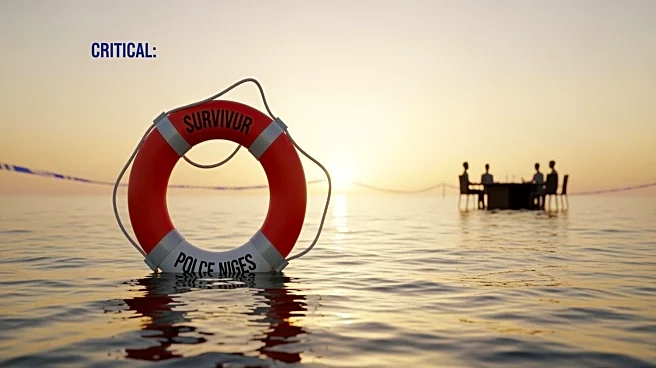What's Happening?
Ecuadorian prosecutors have decided not to charge a man who survived a U.S. military strike on a vessel in the Caribbean Sea. This decision comes despite the Trump administration's classification of suspected drug smugglers as 'terrorists,' which it argues
justifies military action against them. The incident involved a U.S. military strike on a semi-submersible vessel, resulting in the deaths of two individuals. Two survivors were rescued by the U.S. Navy and detained on a warship. The Trump administration chose to repatriate the survivors to their home countries, Colombia and Ecuador, rather than prosecuting them in the United States or detaining them at Guantánamo Bay. The legality of these military actions has been contested by legal experts, who argue that targeting civilians, even suspected criminals, is illegal under international law.
Why It's Important?
The decision by Ecuador not to prosecute the survivor highlights the complex legal and ethical issues surrounding the U.S. military's approach to combating drug smuggling. The Trump administration's policy of using military force against suspected drug smugglers raises questions about the legality and morality of such actions, especially when they involve civilian casualties. This policy is part of a broader strategy to combat drug trafficking, which the administration links to the high number of drug overdose deaths in the United States. However, the focus on South American drug cartels may overlook the primary source of the opioid crisis, which is largely driven by fentanyl from Mexico. The situation underscores the challenges in balancing national security interests with international legal standards and human rights considerations.
What's Next?
The decision by Ecuador may prompt further scrutiny and debate over the U.S. military's role in drug interdiction efforts. Representative Adam Smith, the top Democrat on the House Armed Services Committee, has called for a hearing to examine the policy, indicating potential legislative oversight. The international community and human rights organizations may also weigh in on the legality of such military actions. The Trump administration may continue to face pressure to justify its approach and address concerns about the potential for civilian casualties and violations of international law. The outcome of these discussions could influence future U.S. military and foreign policy decisions regarding drug trafficking and counterterrorism operations.
















